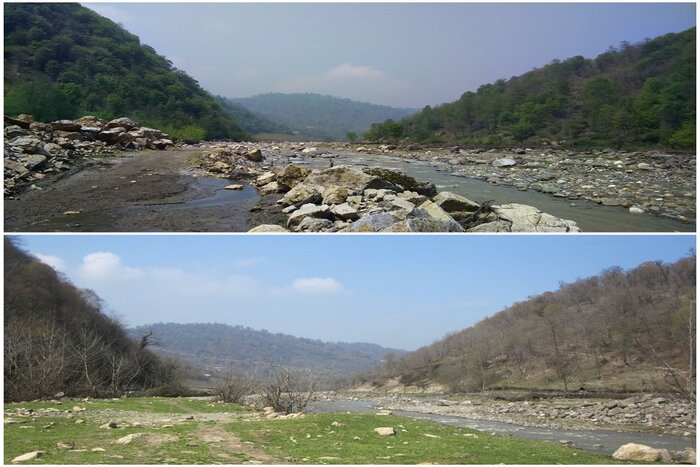The Environmental and Societal Consequences of Dam Construction in Iran
March 26, 2023
Over recent decades, the problem of water scarcity in Iran has primarily resulted from poor governance to the point of mismanagement. One of the main misguided actions taken by numerous governments in the Islamic Republic has been the construction of numerous dams on the country’s major rivers. Dam-building has also been a significant factor in the drying up of wetlands, which has played a crucial role in climate change, the extinction of animal species, and the increased occurrence of dust and particulate pollution in recent years.
Construction of the Khersan-3 Dam began in 2018 by a contractor affiliated with the Islamic Revolutionary Guard Corps. All experts unanimously believe that building this dam will have disastrous consequences for the Dena region in Kohgiluyeh and Boyer-Ahmad, south of Iran. Seventeen villages in Kohgiluyeh and Boyer-Ahmad province and four villages in Chaharmahal and Bakhtiari will be submerged, and millions of oak trees will be destroyed. Over 800 households, totaling over 10,000 residents, will be forced to relocate from these villages. These people, who primarily rely on agriculture and livestock farming, will seek refuge in the outskirts of cities. Furthermore, 25 rare tree species are at risk of drying up.
The same issue applies to the Jiroft Dam. Built on the Halil River, the Jiroft Dam is one of the main reasons for the desiccation of the Jazmourian Wetland in southern Kerman, south of Iran. The strategic role of this wetland for humans and various animal species in the region is undeniable. The drying of Jazmourian has led to increased particulate pollution in the area.
This dam generates only 85 megawatts of electricity. With the affordability of solar panels today, it is now possible to easily produce several times this amount of power. However, this wetland, currently known as the life-giving mother of southern Kerman and parts of Baluchistan, is on the brink of destruction.
